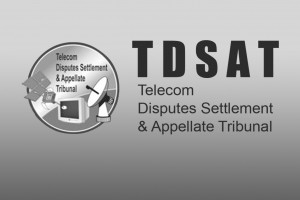Telecom Disputes Settlement & Appellate Tribunal (TDSAT): This matter was brought before Justice S.K. Singh (Chairperson) and A.K. Bhargava (Member).
Facts of the case were such that an Interconnect Agreement was entered between the parties. This dispute occurred due to the bill raised by respondent alleging petitioner that it had tampered CLI (Calling Line Identification) number of international calls as domestic calls wrongly routing the same through Local PoI (point of interconnection) rather than designated PoI which was a violation of terms and conditions of the Interconnect agreement mentioned under Clause 6.4.6. This clause was added later with retrospective effect.
The issues thus raised was whether there was wrongful routing or masking of the calls attracting Clause 6.4.6 and whether number 281-3041000 was an unallocated number with petitioner.
The Call Detail Record (CDRs) submitted as evidence showed the aforementioned number to be unallocated number or a number not in use. Mr Saket Singh counsel on behalf of petitioner submitted that evidence should not be accepted as no conclusion can be drawn from such CDRs due to calls being of less than a minute and a half. This argument was rejected thereby concluding the number in question to be an unallocated number. Whereas Mr Tejvir Singh Bhatia, counsel on behalf of respondent submitted that according to the circular of DoT where CLI could not be tampered, a certain degree of diligence was required from service Provider i.e. petitioner, which was not done. It was brought before Tribunal that petitioner had filed FIR against the purported subscriber but this was contested by respondent stating that the above action of petitioner does not absolve petitioner if wrong routing of case was detected. Respondent further stated that the CLI was tampered as the number though unallocated was found to exist in the petitioner’s network suggesting unauthorised diversion of routing of ILD (International Long Distance Calls) which could have only been done by the service provider.
Tribunal relied on the observation made by the Supreme Court in this matter, that under the Interconnect Agreement, the Unified Access Service License (UASL) holder i.e. petitioner was obliged to maintain the integrity of its exchange/PoI. Since, the petitioner failed to maintain the same, in lights of the evidence, its observation and analysis that the respondent is right in attributing wrong routing by petitioner attracting Clause 6.4.6 of the Agreement.
On the question whether this clause was applicable, Tribunal stated that clause of circular had limited application and thus Clause 6.4.6 of the Agreement should not be held to be substituted by clause of circular. Thus, Clause 6.4.6 was applicable in case of wrong routing of calls with retrospective effect. Therefore, this petition was dismissed as the issues were answered against the petitioner. [Reliance Communication Ltd. v. BSNL, 2019 SCC OnLine TDSAT 64, Order dated 25-04-2019]

